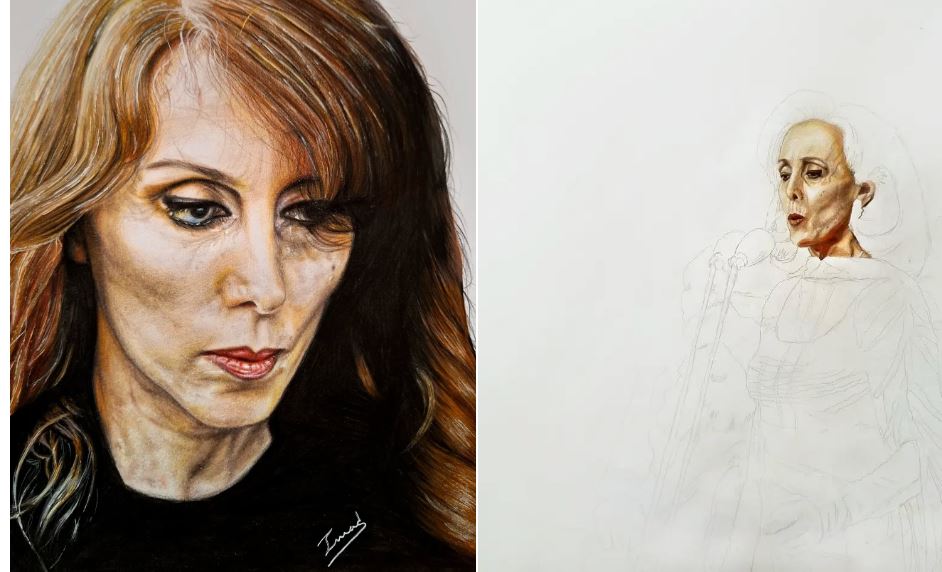Fairuz’s estimated $29.5 million fortune is the result of a career that has lasted over 70 years and combined exceptional commercial longevity with uncommon artistic excellence. Despite its size, her wealth only provides a portion of the picture. Her music’s ability to become ingrained in Lebanon’s identity and resonate across generations with a resonance that no amount of money can adequately capture is the real test of her success.
Fairuz learned early on at Lebanon’s national radio station that being a musician was about more than just selling records; it was about making memories that people would remember for a lifetime. She was given more than just a ceremonial honor when her voice first rose above the Baalbeck International Festival in 1957. It marked the arrival of a talent capable of influencing a country’s cultural self-image as well as its soundtrack.
Fairuz – Personal and Professional Profile
| Attribute | Details |
|---|---|
| Full Name | Nouhad Wadie Haddad |
| Stage Name | Fairuz |
| Date of Birth | November 20, 1934 or November 21, 1935 |
| Birthplace | Beirut, Lebanon |
| Occupations | Singer, Actress |
| Spouse | Assi Rahbani (1955–1986) |
| Children | 4, including Ziad Rahbani |
| Active Years | 1950 – Present |
| Genres | Arabic Music, Lebanese Music, Tarab |
| Estimated Net Worth | $29.5 million |
| Known As | “The Voice of Lebanon”, “The Cedar of Lebanon” |
| Major Achievements | Over 1500 songs, 80+ albums, 150 million records sold |
| Reference | Wikipedia – Fairuz |
Her income came from a variety of sources, including royalties from a catalog of more than 1,500 recorded songs, concert appearances at renowned venues like Carnegie Hall and the Olympia in Paris, and album sales that topped 150 million copies. With a 48-person entourage, the MGM Grand spent $1.5 million to bring her to Las Vegas in 1999, bringing in over 14,000 people inside and thousands more outside just to listen to her voice in the evening air.
Fairuz maintained her mystique by refusing to follow commercial gimmicks or compromise her artistic integrity for popular trends. As a result, demand and ticket prices remained abnormally high. She relied on the timeless appeal of her art, whereas contemporary entertainers frequently rely on brand deals and ongoing digital engagement. Over decades, her “less is more” approach to money proved to be remarkably successful.
Her partnerships with Assi and Mansour Rahbani changed the direction of Lebanese music in addition to creating hits. They deviated from the prevalent Egyptian style of the era by introducing shorter, narrative songs that combined Western and Arabic elements. This new strategy struck a deep chord with the Arab diaspora’s desire for cultural ties and Beirut’s modernization.
Fairuz made the decision to stay in her native country during the 15-year civil war in Lebanon, performing songs of hope and unity while avoiding public affiliation with political parties. Despite the risks involved, this choice made her reputation virtually untouchable. Her music provided a unique space of shared emotion during times of national division. Long-term commercial value has been derived from that emotional trust.
Her catalog is a financial as well as an artistic treasure. Her songs have received hundreds of millions of streams on sites like Anghami decades after they were first released, bringing in a consistent stream of royalties. Like Barbra Streisand or Paul McCartney, she reaps the rewards of a body of work that pays off long after the recording sessions are over.
Her influence went far beyond the boundaries of Lebanon. In a variety of nations, including France, the US, Brazil, and Australia, she played to packed houses. Every foreign appearance enhanced her reputation and, more significantly, increased the sources of income that support her wealth. These tours were not typical; rather, they were cultural events that frequently took place years apart, which made them especially valuable in terms of money and reputation.
When French President Emmanuel Macron paid her a visit at home following the 2020 Beirut port explosion, it was evident how much respect she enjoys. These kinds of visits are uncommon and only made by people whose influence goes beyond entertainment. It strengthened Fairuz’s reputation as a representation of dignity and tenacity, traits that are intangible but greatly enrich one’s legacy.
Following the paths that Fairuz blazed decades ago has helped other Arab legends like Majida El Roumi ($28 million) and Elissa ($35 million) amass their wealth. Her success established a financial standard for female artists in the area, demonstrating that in a demanding field, women could attain both creative autonomy and financial security.
Surprisingly, she has amassed her wealth without resorting to the aggressive self-promotion that characterizes the entertainment industry of today. She has refrained from turning her private life into a spectacle, eschewed social media theatrics, and avoided oversharing in interviews. In a volatile industry, this selective visibility has preserved her reputation, her artistry, and her net worth, which is a rare trifecta.
In a country where financial instability can wipe out fortunes in an instant, Fairuz’s wealth is evidence of prudent management and the long-term viability of cultural authenticity. Her $29.5 million comes from decades of establishing credibility, upholding moral principles, and creating art that audiences find timeless, not just from sales and performances.
In the end, Fairuz’s financial narrative is consistent, methodical, and firmly grounded in connection, much like her artistic one. Even though her wealth is remarkable, it almost seems insignificant compared to the larger legacy she leaves behind—a body of work that has influenced Lebanon’s emotional and cultural climate for more than 70 years. Fairuz’s wealth is just another example of a life lived in service of something much bigger than herself for those who define success not only in terms of numbers but also in terms of impact.




